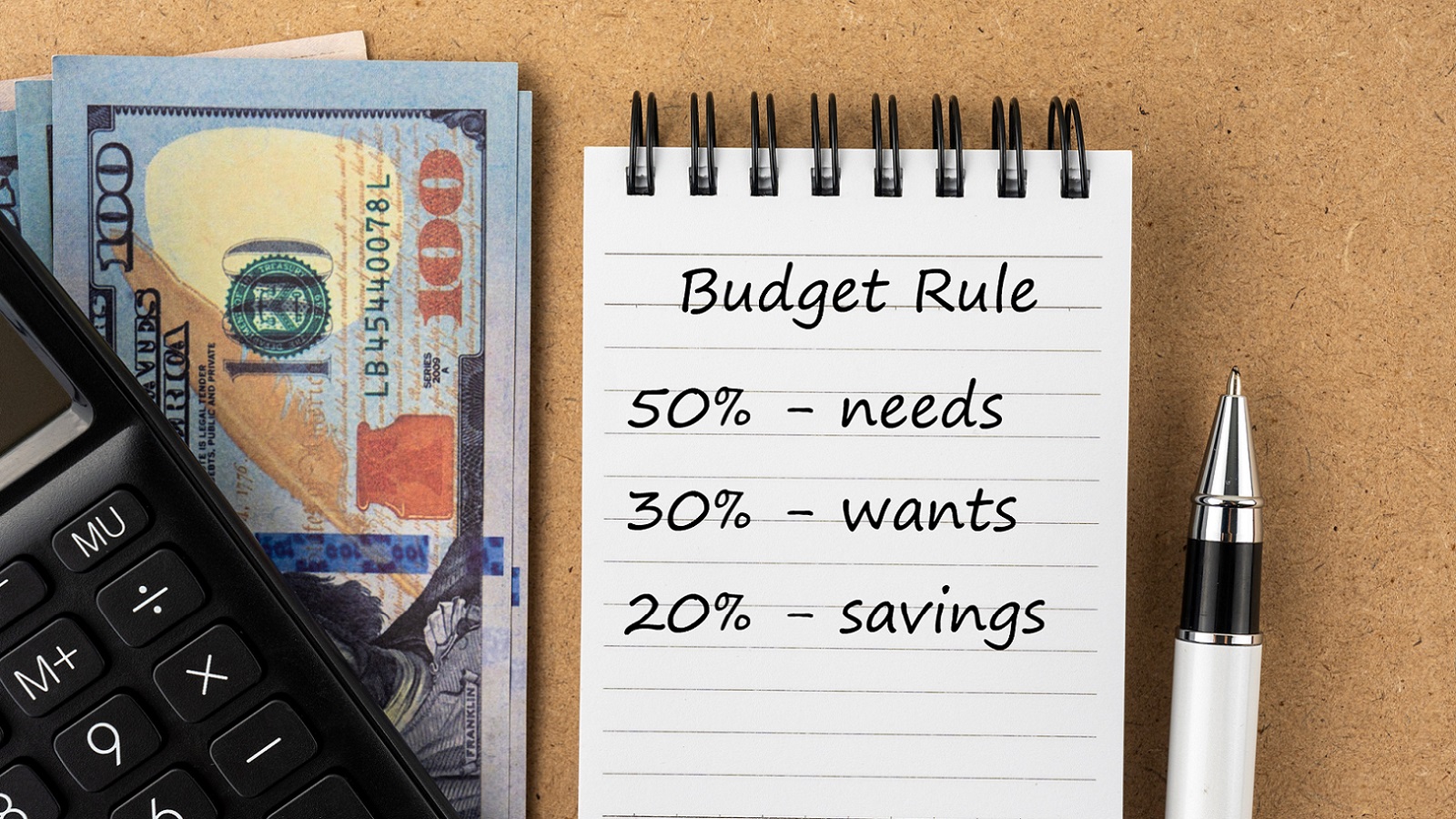How Our Family Fights Inflation
Millennials typically spend more than other generations on certain expenses that have been increasing most rapidly. Here are some tips to cut your losses.

Profit and prosper with the best of Kiplinger's advice on investing, taxes, retirement, personal finance and much more. Delivered daily. Enter your email in the box and click Sign Me Up.
You are now subscribed
Your newsletter sign-up was successful
Want to add more newsletters?

Delivered daily
Kiplinger Today
Profit and prosper with the best of Kiplinger's advice on investing, taxes, retirement, personal finance and much more delivered daily. Smart money moves start here.

Sent five days a week
Kiplinger A Step Ahead
Get practical help to make better financial decisions in your everyday life, from spending to savings on top deals.

Delivered daily
Kiplinger Closing Bell
Get today's biggest financial and investing headlines delivered to your inbox every day the U.S. stock market is open.

Sent twice a week
Kiplinger Adviser Intel
Financial pros across the country share best practices and fresh tactics to preserve and grow your wealth.

Delivered weekly
Kiplinger Tax Tips
Trim your federal and state tax bills with practical tax-planning and tax-cutting strategies.

Sent twice a week
Kiplinger Retirement Tips
Your twice-a-week guide to planning and enjoying a financially secure and richly rewarding retirement

Sent bimonthly.
Kiplinger Adviser Angle
Insights for advisers, wealth managers and other financial professionals.

Sent twice a week
Kiplinger Investing Weekly
Your twice-a-week roundup of promising stocks, funds, companies and industries you should consider, ones you should avoid, and why.

Sent weekly for six weeks
Kiplinger Invest for Retirement
Your step-by-step six-part series on how to invest for retirement, from devising a successful strategy to exactly which investments to choose.
Whether you’re 28 or 68, you’re facing the impact of rising consumer prices on everyday expenses. Inflation continues to drive up the cost of essentials, making it more challenging to stretch your budget. The increasing prices of goods and services — from housing and transportation to groceries and utilities — demand smarter financial strategies to maintain stability and save.
Millennials, in particular, dedicate a larger portion of their spending to categories that have seen the steepest price hikes. Families are also feeling the pinch at the grocery store, with food prices steadily climbing, especially for eggs and dairy. As expenses rise, finding ways to optimize your budget and make intentional spending decisions is more important than ever.
Tweak your budget
I asked several financial advisers how millennials can mitigate inflation’s effects, and many of them brought up the basics of budgeting. Take a close look at your spending habits to see where you can shrink some bloat.
From just $107.88 $24.99 for Kiplinger Personal Finance
Become a smarter, better informed investor. Subscribe from just $107.88 $24.99, plus get up to 4 Special Issues

Sign up for Kiplinger’s Free Newsletters
Profit and prosper with the best of expert advice on investing, taxes, retirement, personal finance and more - straight to your e-mail.
Profit and prosper with the best of expert advice - straight to your e-mail.
To save gas, my husband and I swapped cars. He’s making his half-hour commute in my fuel-efficient sedan. I work from home and shuttle our kids to day care a few minutes down the road in his less-efficient SUV.
Before I buy groceries, I check my supermarket’s weekly flier for deals. Shopping at discount grocers, buying items in bulk, searching for coupons, joining store or gas-station loyalty programs, and charging purchases to a rewards credit card that offers rebates on everyday spending (for our picks, see The Best Rewards Credit Cards) are other ways to counteract price increases on essential expenses.
Trimming nonessential spending may produce bigger savings — and it doesn’t mean sacrificing everything that you enjoy. “You don’t need to start cutting lattes if you really love your daily coffee ritual, but you do need to recognize what isn’t high priority for you,” says Eric Roberge, a certified financial planner and founder of wealth-management firm Beyond Your Hammock.
If you have a pricey gym membership or pay for video-streaming services that you’ll use less during the summer months, consider putting them on pause.
Keep an eye on the future
Don’t overlook the budget components of paying off debt and saving. If you have access to a 401(k), contribute at least enough money to capture any employer match. Stocks tend to beat inflation over time, so make sure they are adequately represented in your portfolio.
Melinda Satterlee, a financial adviser and owner of Marathon Wealth Management, recommends that millennials allocate at least 70% of 401(k) or IRA contributions to stocks and the rest to short-term corporate bond funds.
Final thoughts
Finally, take a deep breath. Most millennials weren’t born the last time inflation was this high, and living through it for the first time as an adult is unsettling. “What we’re seeing today may last a year or two,” says Andrew Crowell, vice chairman of wealth management for D.A. Davidson. “It doesn’t mean prices are going to rise 7% a year the rest of our lives.”
related content
Profit and prosper with the best of Kiplinger's advice on investing, taxes, retirement, personal finance and much more. Delivered daily. Enter your email in the box and click Sign Me Up.

Lisa has been the editor of Kiplinger Personal Finance since June 2023. Previously, she spent more than a decade reporting and writing for the magazine on a variety of topics, including credit, banking and retirement. She has shared her expertise as a guest on the Today Show, CNN, Fox, NPR, Cheddar and many other media outlets around the nation. Lisa graduated from Ball State University and received the school’s “Graduate of the Last Decade” award in 2014. A military spouse, she has moved around the U.S. and currently lives in the Philadelphia area with her husband and two sons.
-
 How Much It Costs to Host a Super Bowl Party in 2026
How Much It Costs to Host a Super Bowl Party in 2026Hosting a Super Bowl party in 2026 could cost you. Here's a breakdown of food, drink and entertainment costs — plus ways to save.
-
 3 Reasons to Use a 5-Year CD As You Approach Retirement
3 Reasons to Use a 5-Year CD As You Approach RetirementA five-year CD can help you reach other milestones as you approach retirement.
-
 Your Adult Kids Are Doing Fine. Is It Time To Spend Some of Their Inheritance?
Your Adult Kids Are Doing Fine. Is It Time To Spend Some of Their Inheritance?If your kids are successful, do they need an inheritance? Ask yourself these four questions before passing down another dollar.
-
 I Need to Cut $1,000 From My Monthly Budget, and I've Already Given Up Starbucks and Dining Out. What Else Can I Do?
I Need to Cut $1,000 From My Monthly Budget, and I've Already Given Up Starbucks and Dining Out. What Else Can I Do?Here are some creative ways to save up to $1,000 a month, even if you feel like you've already made all of the obvious cuts.
-
 I'm a Government Employee and Need to Get By Until the Shutdown Ends. What Can I Do?
I'm a Government Employee and Need to Get By Until the Shutdown Ends. What Can I Do?The second-longest shutdown in history is leaving many federal workers with bills due and no paycheck to cover them. Here's what you can do to get by.
-
 What Does Medicare Not Cover? Eight Things You Should Know
What Does Medicare Not Cover? Eight Things You Should KnowMedicare Part A and Part B leave gaps in your healthcare coverage. But Medicare Advantage has problems, too.
-
 When Renting Is Smarter Than Buying
When Renting Is Smarter Than Buyingreal estate There are some situations when renting is smarter than buying. You're not necessarily throwing your money away when you rent.
-
 The 50-30-20 Budget Rule: A Simple Way to Save Money
The 50-30-20 Budget Rule: A Simple Way to Save MoneySaving Using the 50-30-20 budget rule is an easy way to save. It helps you prioritize saving while paying off debt.
-
 'Food Tax': Which States Still Tax Groceries?
'Food Tax': Which States Still Tax Groceries?State Tax Ten states still tax groceries, but that figure is shrinking.
-
 How Do You Pay off Credit Card Debt?
How Do You Pay off Credit Card Debt?Making Your Money Last Pay off credit card debt with these tried-and-true strategies.
-
 Bear Market Strategy for Millennial Investors
Bear Market Strategy for Millennial InvestorsA focused, goal-oriented approach to investing can help millennials navigate a bear market.